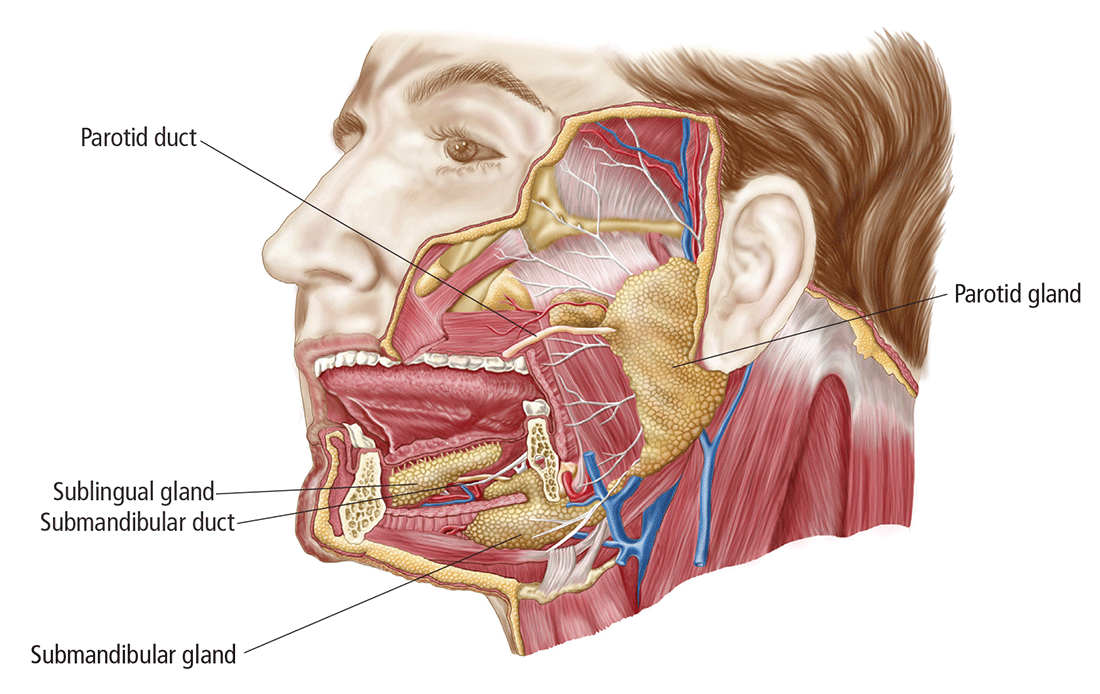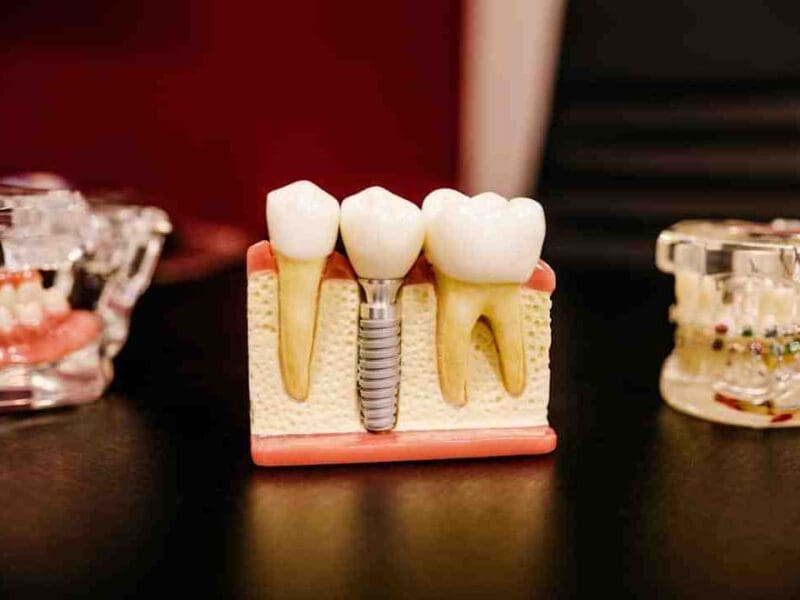
SALIVARY GLANDS DISORDER
The salivary glands are located within the mouth. S salivary glands come in pairs of three. Parotid glands are located directly below and in front of each ear. Under the jaw are the submandibular glands. The tongue has glands called sublingual glands. Hundreds of tiny glands are also present. These glands produce saliva (spit), which they release through duct-like structures into the mouth. Food becomes moist due to saliva, which facilitates chewing, swallowing, and food digestion. Saliva also maintains oral health and cleanliness because it includes antibodies that fight bacteria.
It can impair taste, make chewing and swallowing more challenging, and raise the risk of cavities, tooth loss, and oral infections if the salivary glands are injured or not producing enough saliva. When something inhibits one or more of the salivary glands, it can cause problems that impede the production or release of saliva. Your salivary glands may be impacted by a variety of illnesses. These can be Sjogren’s syndrome or malignant tumors. While some illnesses improve with time or antibiotics, some necessitate more intensive therapies, such as surgery.
WHAT CAUSES SALIVARY GLANDS DISORDER?
- The salivary glands may develop sialadenitis and sialolithiasis:
Sialolithiasis is a condition in which calcium-based stones develop in the salivary glands. Salivary flow may be partially or stopped if these stones clog the glands. An infection of the salivary gland is known as sialadenitis (or sialoadenitis). It frequently happens when the gland is blocked by stones. Bacteria like staph or strep can result in this infection. The illness is particularly likely to affect newborns and older people.
- Sjogren’s syndrome:
Another typical condition of the salivary gland is Sjogren’s syndrome. It happens when white blood cells attack healthy cells in glands that produce moisture, like the oil, sweat, and salivary glands. Women who suffer from autoimmune diseases like lupus are most frequently affected by this problem.
- Viruses:
Viruses might affect the salivary glands as well. These viruses are flu virus, mumps, Coxsackie virus, echovirus, and cytomegalovirus.
- Tumors, both cancerous and non-cancerous:
The salivary glands can develop tumors of both benign and malignant types. The salivary glands rarely develop cancerous tumors. According to Cedars-Sinai, they typically affect people between the ages of 50 and 60 when they do occur.
Pleomorphic adenomas and Warthin’s tumors are two non-cancerous tumors that can affect the parotid glands. The minor salivary glands and the submandibular gland can occasionally develop benign Pleomorphic adenomas as well.
WHAT ARE THE SYMPTOMS OF SALIVARY GLANDS DISORDER?
1. The symptoms of sialolithiasis include:
- painful lump under the tongue
- pain that increases when eating
2. Sialadenitis symptoms include:
- bump in your cheek or under your chin
- pus that drains into your mouth
- strong or foul-smelling pus
- fever
3. Cysts that grow in your salivary glands can cause:
- yellow-colored mucus that drains when the cyst bursts
- difficulty eating
- difficulty speaking
- difficulty swallowing
4. Viral infections in the salivary glands, such as mumps, can cause:
- fever
- muscle aches
- joint pain
- puffy face
- headache
5. The symptoms of Sjogren’s syndrome include:
- dry mouth
- dry eyes
- tooth decay
- sores in the mouth
- joint pain or swelling
- dry cough
- unexplained fatigue
- swollen salivary glands
- frequent salivary gland infections
If you notice the following symptoms, see your doctor:
- A bad taste in your mouth
- Dry mouth
- Mouth pain
- Facial swelling
- Trouble opening your mouth
HOW ARE DISEASES OF SALIVARY GLANDS DIAGNOSED?
Based on a physical assessment and your medical history, an ENT specialist will advise tests.
Even just the history and physical examination can reveal some situations. Diagnostic tests might not be required in such circumstances. To identify a salivary gland obstruction, an ENT specialist may wish to examine the obstruction. Finding the obstruction can be made easier by taking a dental X-ray of the troubled location. The salivary gland opening can then be made numb and any obstructions can be removed by a head and neck surgeon under anesthesia.
A more detailed image can be obtained from an MRI or CT scan if an ENT specialist wants to precisely target the salivary glands.
Additionally, a biopsy to extract salivary gland tissue can help with diagnosis, especially if your doctor has any suspicions.
HOW ARE DISEASES OF SALIVARY GLANDS TREATED?
Medical or surgical therapies are used to address salivary abnormalities depending on what is causing them. If a systemic illness—a sickness that affects the entire body—is the root cause of the salivary ailment, that illness must be addressed first. A trip to an ENT specialist might be necessary for this. Your doctor may use a local anesthetic to numb the area if the issue is related to a salivary gland obstruction so they can probe and widen the duct to remove the obstructive stone.
Your doctor can advise having the salivary gland removed if a tumor has grown there. A surgical otolaryngologist also referred to as an ear, nose, and throat doctor may be recommended to you. The majority of benign tumors are in the parotid gland region (noncancerous). If a tumor is malignant, it will be surgically removed, and the surrounding area will then get radiation therapy. You can consult an ENT specialist in Lucknow whose consultation fees might range between INR 400 to INR 1000.
CONCLUSION
Most infections of the salivary glands resolve on their own or respond well to therapy. Some infections could come back. There are rare complications.
Possible complications include a salivary gland abscess, renewed infection, and infection spreading.
Salivary gland infections are frequently preventable but not always. Some bacterial infections may be prevented with proper mouth hygiene. If you have signs of an infection of the salivary glands and if the symptoms of salivary gland infection worsen consult an ENT specialist as soon as possible to control the infection and further problems of salivary glands.







